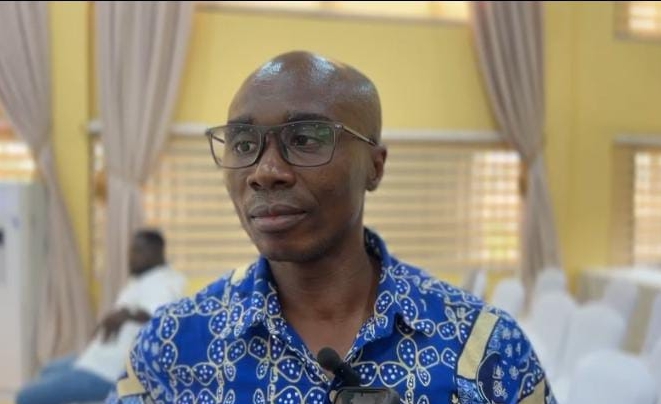Prof. Patrick Asuming
Ghana’s recent improvement in foreign reserves has been driven by strong financial and monetary policy discipline, not necessarily a broad-based recovery in the real economy.
That’s the key message from economist and University of Ghana professor, Patrick Asuming, on JoyNews’ PM Express Business Edition on Thursday, June 19.
“The financial and the monetary side of the economy have performed better,” Prof Aning declared, emphasising that government’s aggressive moves to stabilise finances were yielding visible results.
“Government has been very quick to try and put its finances in order, and that has reflected in the Treasury Bills rates.”
He noted that Ghana’s reserve position has benefited from a combination of deliberate policy choices and fortunate global trends.
“A combination of policy direction in terms of our reserve position, as well as some luck in terms of what has happened with global prices of some of our export items, we have done well,” he explained.
“That has boosted our foreign reserve position.”
Prof Aning pointed out that the decision to “cash in” on those reserves at the right time also helped improve headline macroeconomic indicators.
However, he warned that the improvements, while real on paper, don’t tell the full story.
“If you look at how the economy ended in 2024, our macroeconomic indicators are looking way much better than where we were before,” he said.
“But we still have to understand that even though the first quarter GDP performed [above] expectation, there are still lingering weaknesses.”
Breaking down the GDP numbers, he revealed that out of Ghana’s 20 economic subsectors, five actually declined.
“But the weightier subsectors grew strongly, so it made up for the decline,” he explained.
“That’s why we are beginning to see stronger growth numbers. But there is a disconnect between the numbers and how people are feeling in their pockets.”
Prof Aning also offered a reality check on inflation and prices, especially with regard to recent Producer Price Index (PPI) numbers.
“We have moved from around 18 to around 10,” he said. “But prices are still rising. They haven’t declined. There is a rate of price increase that has reduced. We have to be clear about that.”
He cautioned that the strengthening cedi alone doesn’t mean prices will fall.
“The currency has gained and strengthened, but look at the other components that go into production. Tariffs keep going up, wages are not coming down, and domestic cost of production is rising,” he explained.
The former economist urged policymakers and the public not to mistake macroeconomic stabilisation for a full recovery. “The real side of the economy seems to be lagging behind,” he stressed.
“That tends to give you a disconnect between how people are perceiving the economy and what the macro numbers are showing.”
While acknowledging progress on the financial front, Prof Aning warned that economic management must now focus on ensuring the real economy catches up.
Until then, he said, ordinary Ghanaians may continue to feel little relief—even as the country’s reserves and credit ratings improve.
DISCLAIMER: The Views, Comments, Opinions, Contributions and Statements made by Readers and Contributors on this platform do not necessarily represent the views or policy of Multimedia Group Limited.
DISCLAIMER: The Views, Comments, Opinions, Contributions and Statements made by Readers and Contributors on this platform do not necessarily represent the views or policy of Multimedia Group Limited.


